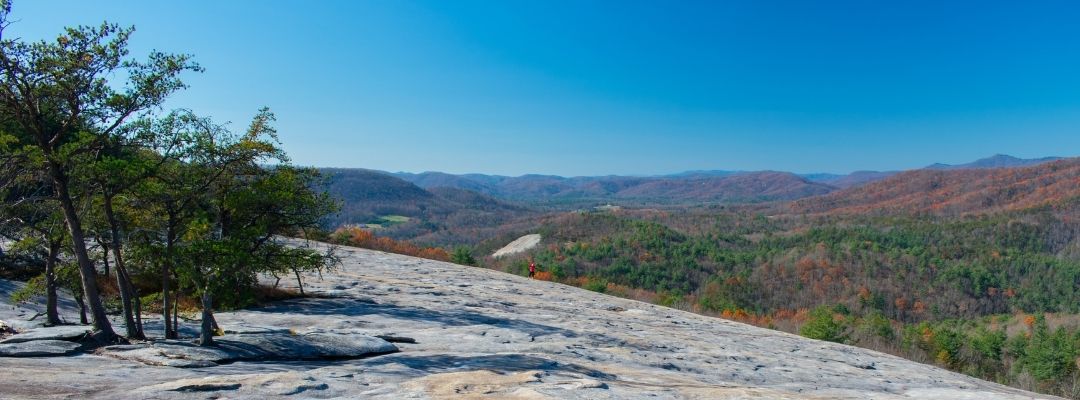CTNC’s 2022 Policy Agenda
Conservation can provide solutions to many challenges facing our communities. Through innovative conservation strategies, we can build places to hold excess water after storms, protect trees that absorb carbon from the atmosphere, and offer places for people to relax for their mental and physical health.
In 2021, North Carolina legislators voted to spend nearly $200 million to support efforts that will allow our state to become more resilient to climate change. We urge our state leaders to repeat this important investment in our state’s natural resources. Only with smart conservation policies will we successfully build resilient communities that are prepared to weather any storm.
CTNC’s Policy Goals include:
- Increase public funding for land acquisition, park maintenance, trail construction, and recreation access
- Empower communities to invest in flood-resilient strategies
- Prevent involuntary land loss caused by forced partition sales of heirs property
- Build capacity within communities through AmeriCorps and other service opportunities
These goals will guide our work with policymakers and legislators for the years to come and key outcomes will prepare our state for whatever comes next.
INCREASING FUNDING FOR CONSERVATION
CTNC supports the continued funding of the conservation trust funds as recommended by Land for Tomorrow. We hope to work with members of the General Assembly to increase recurring funding for the state’s conservation trust funds and state agencies. Read more about the legislative priorities set by members of Land for Tomorrow.
As a member of the Great Trails State Coalition, CTNC will continue to work with members of the General Assembly to bring the economic, health, and environmental benefits of trails to North Carolina communities.
Read more about the legislative priorities set by members of the Great Trails State Coalition.
EMPOWERING RESILIENT COMMUNITIES
North Carolina communities need greater investments, increased capacity, and a cadre of service-minded people to be successful in implementing the recommendations of Governor Cooper’s Executive Order 80 and Climate Risk and Resilience Plan. CTNC will advocate for the funding and resources that provide every community with the opportunity to benefit from AmeriCorps service that builds capacity and finds innovative conservation solutions to address the issue of climate change. Learn more about Resilience Corps NC.
Land trusts can lead the way in addressing the impacts of climate change and flood risk. Alongside the Land Trust Alliance, CTNC will promote policies and funding that advance natural climate solutions while supporting the protection, restoration and stewardship of open and working lands that increase climate resilience. Read more about Land Trust Alliance’s policy priorities.
PREVENTING INVOLUNTARY LAND LOSS
Enacting the Uniform Partition of Heirs Property Act (UPHPA) in North Carolina will address how current state laws leave landowners of heirs’ property vulnerable to involuntary land loss. The UPHPA will help families by giving them a solid chance at keeping the land in the family when one or more owners wants to divide or sell the land through a partition action. Currently, the North Carolina General Assembly is considering adoption of the bill that would safeguard families from forced sales through partition action. Read more about the NC Heirs Property Coalition and our effort to adopt the Uniform Act for NC families and landowners.
It All Starts with Collaboration to Seed Better Outcomes
CTNC is committed to participating in coalitions to find a better future for our state. Our team is active members of Land for Tomorrow, the Great Trails State Coalition, and the NC Heirs Property Coalition, Conservation Trust for NC. These coalitions advocate for smart conservation policies and adequate funding on behalf of our members, community partners, and collaborative projects.
Join Us
As a member of the CTNC community, we hope you will stand with us and advocate for smart conservation policies that allow every North Carolinian to benefit from conservation and get the tools needed to build communities that are resilient to the impacts of climate change.

